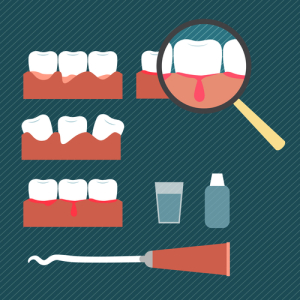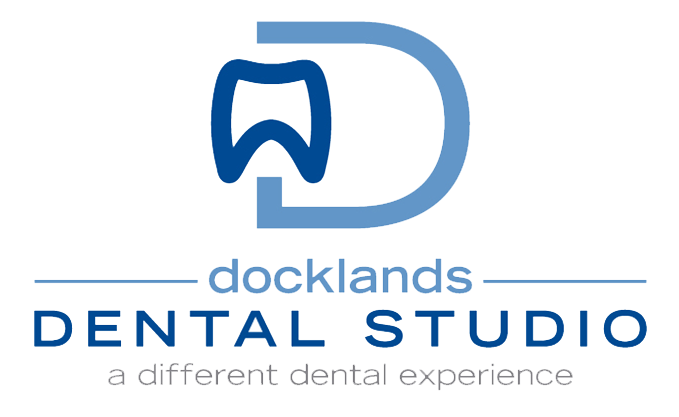 Many of us have experienced swollen, irritated, bleeding gums at one point or another. You may have noticed this while brushing, flossing, or eating. While bleeding gums can be alarming, and they certainly merit changes in oral hygiene, you shouldn’t panic if you notice this symptom. At Docklands Dental Studios, Dr. Pia Oparkcharoen and our dedicated staff work to help our patients better understand and care for their mouths. We’re here to answer your questions, address your concerns, and give you the healthy, beautiful smile you deserve with our wide array of services. In this week’s blog, we explain what bleeding gums mean and how we can help you remedy this condition.
Many of us have experienced swollen, irritated, bleeding gums at one point or another. You may have noticed this while brushing, flossing, or eating. While bleeding gums can be alarming, and they certainly merit changes in oral hygiene, you shouldn’t panic if you notice this symptom. At Docklands Dental Studios, Dr. Pia Oparkcharoen and our dedicated staff work to help our patients better understand and care for their mouths. We’re here to answer your questions, address your concerns, and give you the healthy, beautiful smile you deserve with our wide array of services. In this week’s blog, we explain what bleeding gums mean and how we can help you remedy this condition.
You suffer from gum disease.
The most common cause of bleeding gums is gingivitis, the first phase of gum disease. The same bacteria that accumulate in plaque and tartar on your teeth to cause cavities can also collect beneath your gum line, causing infection. In addition to bleeding, gingivitis can cause swelling, puffiness, redness, sensitivity, and halitosis (bad breath). At this stage, Dr. Oparkcharoen can help you remedy your gingivitis by encouraging you to floss for at least two minutes at least twice per day, and floss at least daily (flossing is the only way to remove plaque, tartar, and debris from between the teeth and beneath the gum line). If this is unsuccessful, we may recommend performing a deep periodontal cleaning treatment called root planing and scaling, which removes plaque and tartar from beneath your gums. Without proper treatment, gingivitis can advance to periodontitis, a more severe infection that can cause tooth loss or systemic issues, so it is important not to ignore bleeding gums.
You are experiencing hormonal changes.
Women’s hormonal changes can make the gums much more prone to bleeding. In fact, WebMD reports: “As a result of varying hormone levels, 40% of women will develop gingivitis sometime during their pregnancy — a condition called pregnancy gingivitis.” For this and other reasons, it’s important to maintain excellent dental hygiene and come to our practice for your biannual appointments. During these visits, Dr. Oparkcharoen will examine your tissue for signs of gum disease and make appropriate treatment recommendations.
You brush and floss your teeth too hard.
It may sound counterintuitive, but your gums may actually bleed if you clean your teeth too vigorously. Overly sharp or firm toothbrush bristles can irritate your tissue and cause bleeding. Flossing violently can have the same effect. We recommend cleaning your teeth with a medium-bristled toothbrush at a 45-degree angle and gently flossing in a “C” shape around your teeth.
You’re taking certain medications.
Unfortunately, certain drugs can cause you gums to bleed as a side effect. The Australian Prescriber notes: “bleeding gums are usually the result of plaque-induced gingival inflammation and swelling… Although it is a relatively uncommon reaction, a number of drugs have adverse effects that may directly or indirectly cause gingival bleeding.” Medications such as anticoagulants, antihistamines, antacids, painkillers, antidepressants, sedatives, and decongestants can have this effect. If you suffer from prolonged bleeding gums, Dr. Oparkcharoen may review your prescriptions and work with your general practitioner to create a solution.
Do Your Gums Bleed?
If you suffer from bleeding gums, Dr. Oparkcharoen and our team can help. Contact us today to find out more or schedule a consultation.
